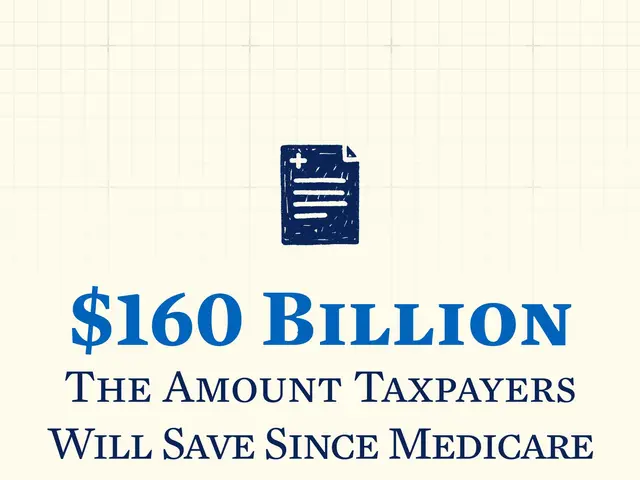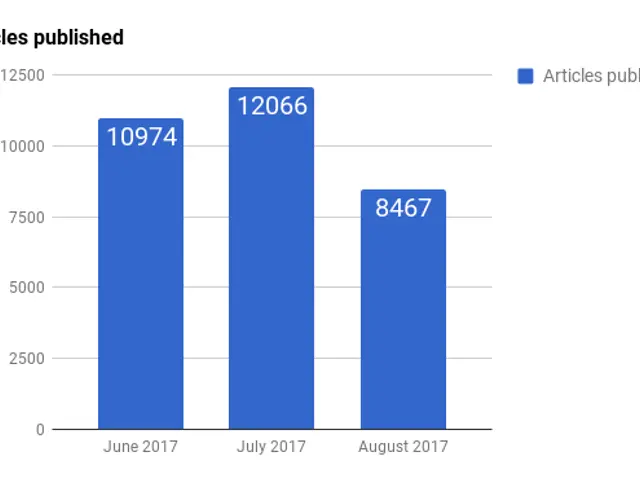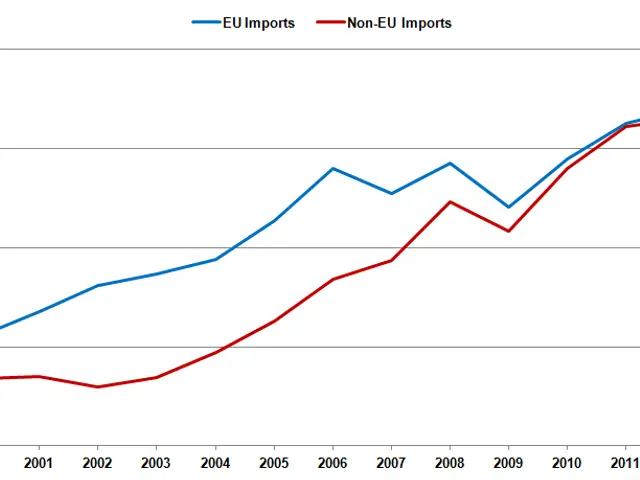Venezuela's Forthcoming Presidential Vote: A Dialogue with Roy Daza
The Venezuelan Political Battlefield: A Deep Dive into July 2024
Ready for a political clash? Venezuela is gearing up for presidential elections on July 28, 2024, with the Bolivarian process hanging in the balance. This election features no fewer than twelve contenders challenging incumbent President Nicolás Maduro. Roy Daza, Vice President of the National Assembly's Foreign Relations Commission, sheds light on the complex political and social scene surrounding these crucial elections.
Amidst a Sea of Crises, Struggling for political stability
To get a grip on Venezuela's situation, one must first acknowledge the pervasive impact of unilateral coercive measures. Yet, it's not just economic sanctions wreaking havoc—ongoing coup plots, assassination attempts, political destabilization efforts, street violence known as "guarimbas," and a diplomatic siege backed by the United States, the Organization of American States, and the now-defunct Lima Group have also played havoc with the nation.
Caught in this imperialist whirlwind, Venezuela's government has responded democratically, organizing parliamentary and regional elections, convening a Constituent Assembly, and engaging opposition forces open to dialogue. But the storm keeps brewing amidst attempts to destabilize the country.
Three key turning points
- Defeating Guaido's 2019 regime-change bid: The failure of Donald Trump's 2019 plan to oust Venezuela's government by promoting an "interim government" spearheaded by Juan Guaido led to a divisive rift within the opposition.
- Covid-19 Pandemic success: The effective response of the government and the people to the Covid-19 pandemic, from 2020 onwards, resulted in a victory and highlighted the country's political resilience and stability.
- 2020 December elections: The revolutionary forces' triumphant return to the control of the National Assembly marked a significant milestone.
Facing a New Wave of Imperialist Defiance
As the United States aims to reactivate its destabilization strategy in cahoots with the most extreme factions of the Venezuelan opposition, Venezuela entered a challenging phase. Political stability and government policies have resulted in an important albeit incomplete economic recovery, tangible in the streets of Caracas and beyond. However, US imperialism is determined to plunge the country back into chaos.
Community Consultations and the July 2024 Presidential Elections
Faced with this renewed US-backed aggression, Venezuela's government has launched two responses:
- A nationwide consultative process happening on April 21 involving 4500 communities to identify local issues and provide government funding for addressing them.
- July 28 presidential elections—a potentially pivotal battle for political power.
The Case of María Corina Machado: Disqualification and Context
María Corina Machado's exclusion from the 2024 presidential elections sparked media headlines and foreign government attention. In 2015, she was disqualified due to her participation in an OAS conference on behalf of another country (Panamá) in violation of her duties as a member of the National Assembly. She also called for military intervention, a move that as per recent events, directly led to two mercenary incursion attempts in 2019 (February) and 2020 (May).
Why isn't her party registered by the CNE?
Machado's party is deregistered due to her calls for abstention during consecutive elections, a move forbidden by Venezuelan law. Despite having the chance to collect necessary signatures to renew the party subscription, they chose not to.
Reply to Petro and Lula's Concerns
Gustavo Petro and Luiz Inacio "Lula" da Silva, leaders of Colombia and Brazil, respectively, have voiced concerns regarding Venezuela's electoral process. While they are welcome to express their opinions, it would be wise for them to dig deeper before making public statements. Crucially, they haven't reached out to opposition candidates such as Edmundo Gonzalez or Manuel Rosales—who retain their credibility—to engage in open dialogues about these concerns.
María Corina Machado's Future Aspirations and her Party's Fate
Machado attempted to launch a candidate using a name similar to hers (Corina Yoris) but was denied due to her party being unregistered by the CNE. Edmundo Gonzalez, a credible opposition candidate, has bagged multiple party endorsements, adding legitimacy to the electoral process.
Conclusion: The Roller Coaster Ride Ahead
The upcoming months promise a tumultuous ride for Venezuela. With seven magnicide conspiracies thwarted in the last two years, heightened security is now necessary but not ideal for electoral campaigns. The extreme right, with imperialist support, will attempt to sow chaos. The aspirations remain simple—Democracy, peace, and tranquility. The July 28 elections will take place amid the long-lasting effects of crippling sanctions, the ongoing threat of reinstating all coercive measures, and fears of possible attempts on the candidate's life. As the international court's verdict on the Essequibo dispute and María Corina Machado's false accusations against President Maduro await resolution, only time will reveal the path Venezuela chooses.
- The ongoing crisis in Venezuela is not just about economic sanctions; it also involves conflicts such as coup plots, assassination attempts, political destabilization efforts, street violence, and a diplomatic siege backed by foreign powers.
- Amidst these challenges, the Venezuelan government has responded democratically by organizing elections and engaging opposition forces in dialogue. However, the country continues to face threats of imperialist destruction and chaos.
- A key turning point was the failure of Donald Trump's plan in 2019 to oust Venezuela's government, which divided the opposition. The effective response to the Covid-19 pandemic and the revolutionary forces' triumphant return to control of the National Assembly were other significant milestones.
- As the United States aims to reactivate its destabilization strategy, Venezuela is entering a challenging phase. To counter this, the government has launched a nationwide consultative process and called for July 28 presidential elections, a crucial battle for political power.









